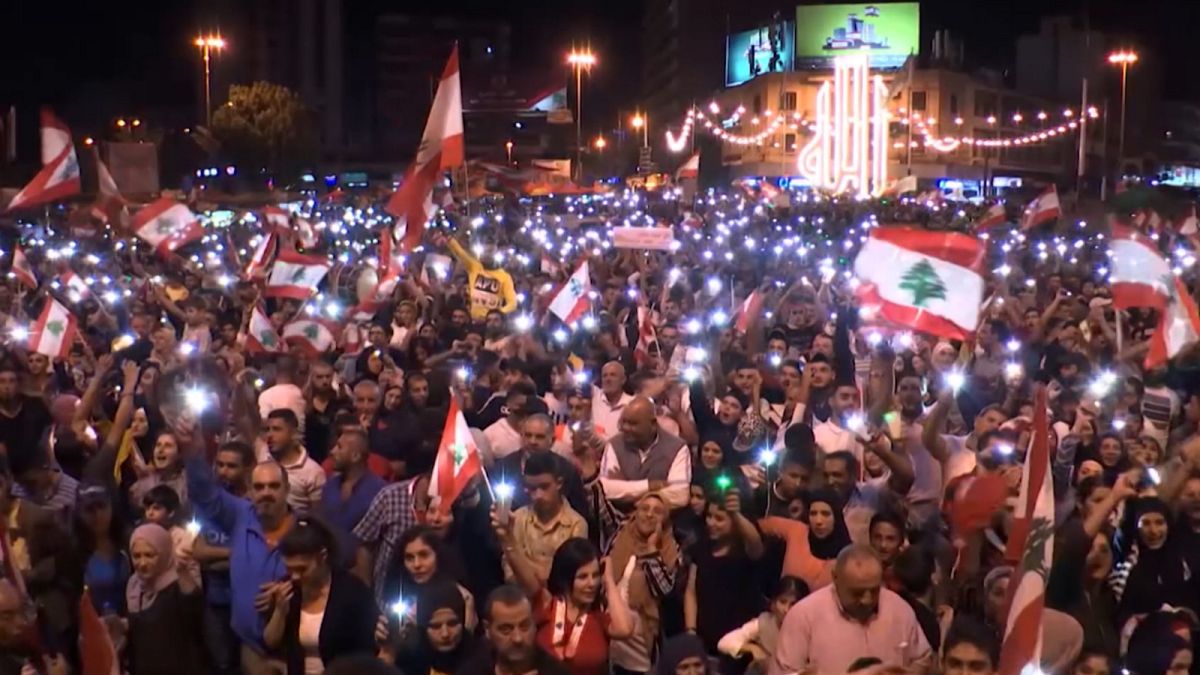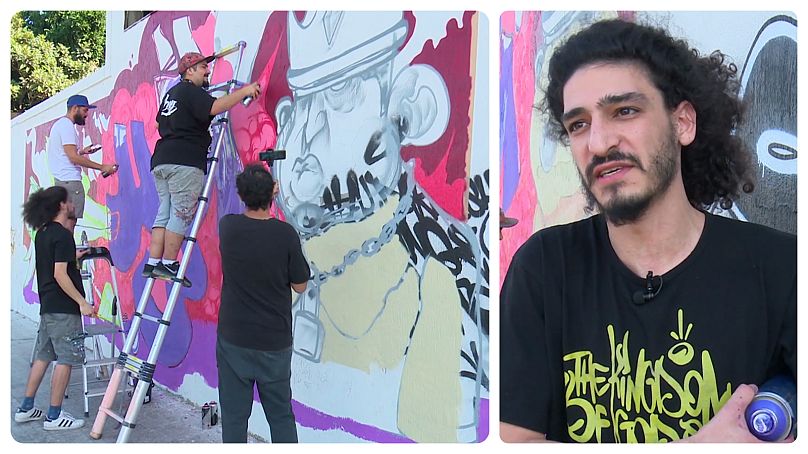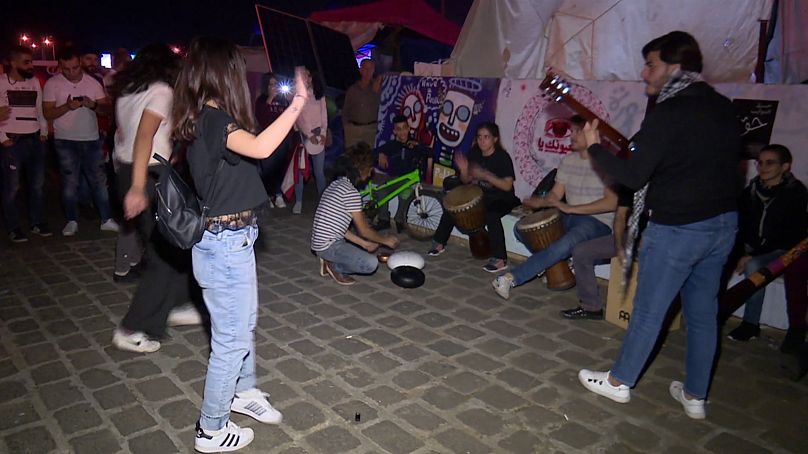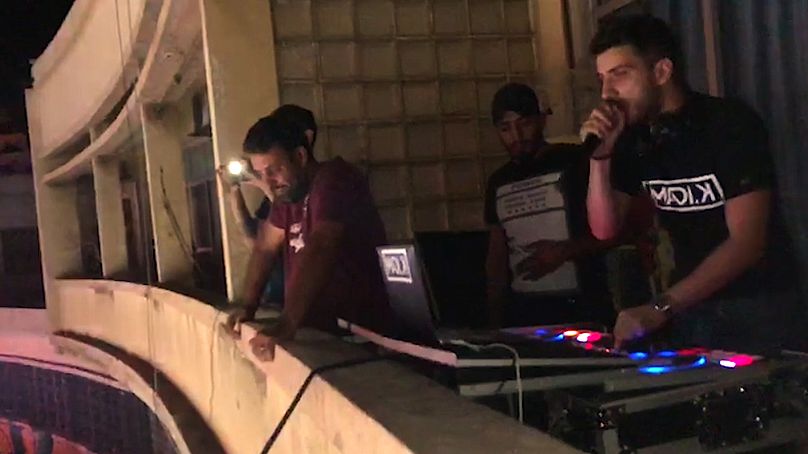Against the backdrop of Lebanon’s political protests, which began in October, a creative and musical art scene emerged.
Against the backdrop of Lebanon’s political protests, which began in October, a creative and musical art scene emerged.
Spray-painting a picture of the country’s socio-political landscape is a muralist who goes by the name, Exist. His latest canvas is the outer wall of Beirut’s national electricity company.
“In a community that has been restricted culturally and financially, I think it’s about time to say we don’t want, like slavery,” says the graffiti and street-artist.“We wrote about our revolution, that’s where culture comes out of, you know, our struggles.”
Movement on the move
Using other forms of expression, such as song and dance, many protesters on Lebanon’s streets have called for the removal of a government they say doesn’t represent them.
Dance teacher Mazen Tannous, believes the Lebanese people are particularly gifted in artistic fields. He argues that the struggles and hardships they have endured in their turbulent homeland has made them stronger and more expressive.
“The most artistic places come from pain and suffering, because when you don’t have much to do, there is nothing else but to be creative,” he says. “So, we try to explore our emotions in an artistic way, not in an angry way.”
At Martyr’s Square in Beirut, protesters have built a makeshift camp.
They’ve also decorated their surroundings with wall art, flags, slogans, candles and flowers.
Adding to the atmosphere of unification and optimism is the sound of impromptu nightly concerts.
Friends old and new come together in the central square, to sing, dance, and celebrate their shared vision for Lebanon’s future.
“All the protests made me really motivated to share my music, to encourage people to come down, to use their public spaces,” says Dana Al Ali, a drummer and protester at the camp. “We have a lot to say, a lot to do, and if there’s more faith in us, we will take this country higher than ever imagined.”
Feeling the political pulse
Scenes of people thronging together and expressing themselves through art, poetry, music and dance have been replicated across Lebanon in recent months.
Not least in the northern city of Tripoli, where the popular Lebanese DJ Madi Karimeh, leads nightly dance parties for thousands of protesters.
He has given himself the nickname of the ‘Revolution DJ’, and like Al Ali, he believes that by Lebanon’s talented youth coming together creatively, they can build a new country that represents them all.
SEEN ON SOCIAL MEDIA: DRAWING A MESSAGE
Chimène from Lebanon made this illustration, which reads “Lebanon, rise up.” She believes the recent events in her country have shown that people can laugh and dance together whilst still making a political statement.





